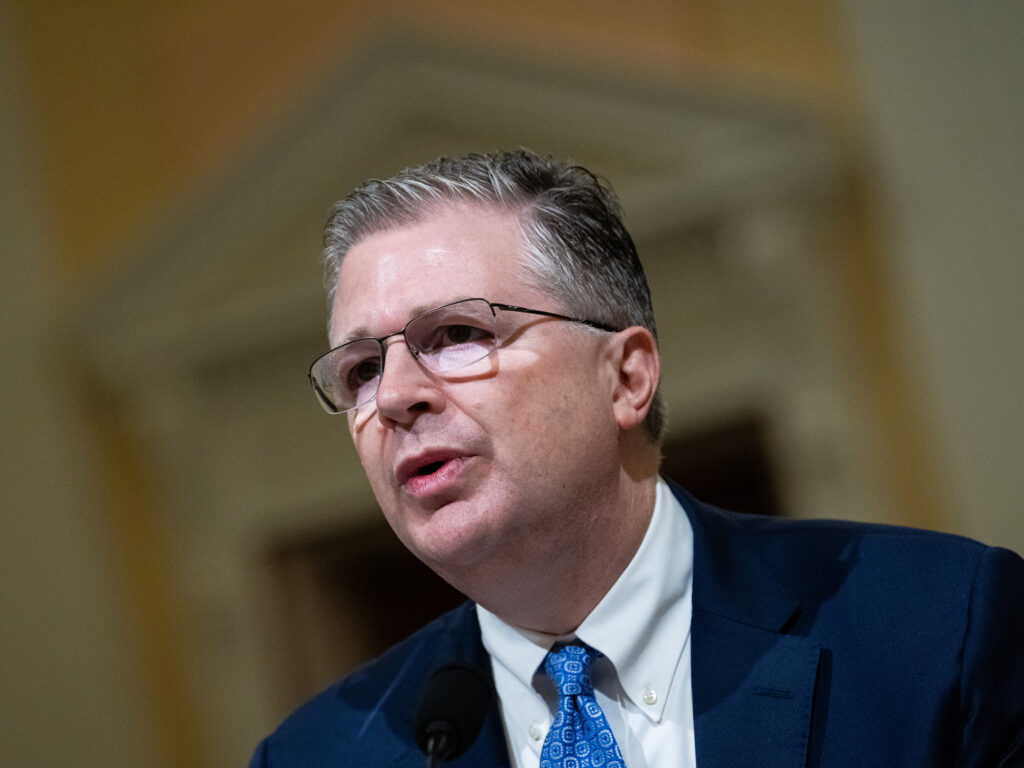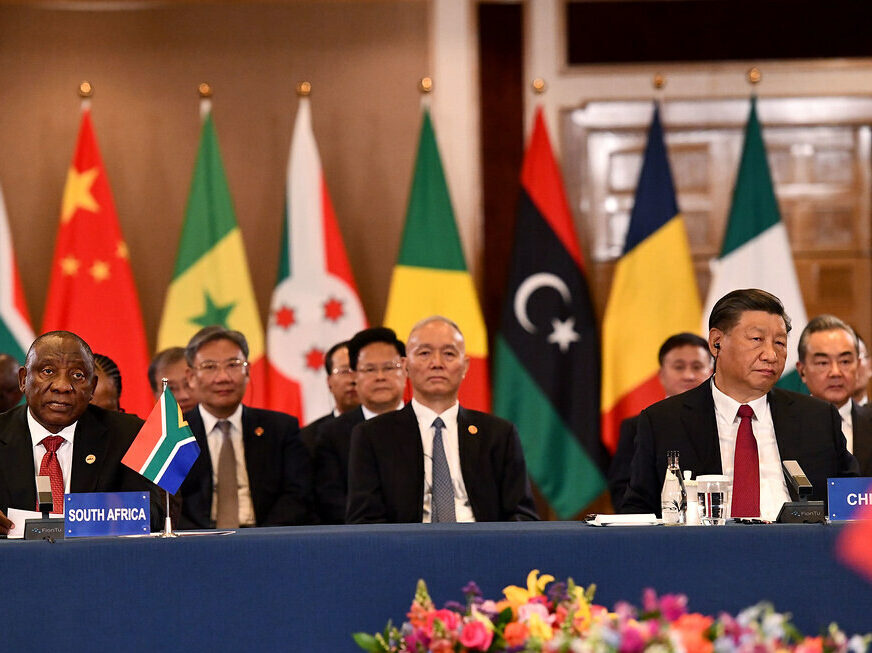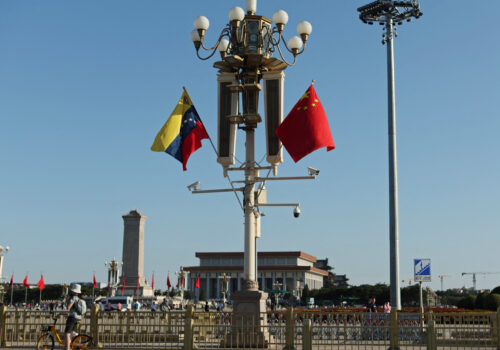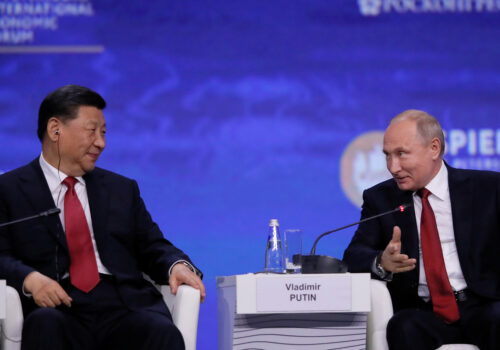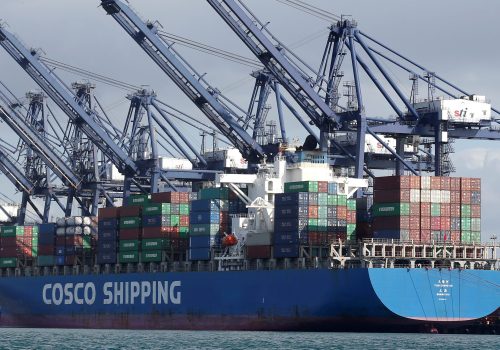Watch the full conference
In the United States’ “intense strategic competition” with China in the Global South, Washington is deploying a two-pronged strategy: Investing in US strength and aligning more closely with allies and partners, Daniel J. Kritenbrink, US assistant secretary of state for East Asian and Pacific affairs said Wednesday.
As for why the United States is looking to compete with China in the Global South: China, Kritenbrink warned, “is advancing an alternative vision for global governance”—think the Belt and Road Initiative and Global Development Initiative—that represents a “departure from many of the principles that lie at the heart of the international system.” He noted that, for example, some Chinese projects in other countries harm the environment or come with unsustainable debt.
“We are competing with [China] to offer a better value proposition to developing countries,” Kritenbrink explained, pointing to some of the United States’ recent packages of bilateral development assistance, humanitarian aid, and infrastructure investment.
Kritenbrink spoke at a conference hosted by the Atlantic Council’s Global China Hub devoted to unpacking China’s influence in the Global South.
“We don’t want countries to have to choose between us and [China],” Kritenbrink said. “But we want to help ensure that they have a choice and that they can make their decisions free from coercion.”
Below are more highlights from the remarks, which touched upon the United States’ approach to development cooperation and China’s vision for the global order.
A little help from friends
- The United States sees its allies and partners as its “unique comparative advantage,” Kritenbrink said, explaining that the United States is expanding the list with new bilateral partnerships and regional summits—for example, with Pacific Island countries and members of the Association of Southeast Asian Nations.
- The US approach to working with its partners, Kritenbrink said, is to “understand what their top needs and priorities are and then [work] together to address them” with solutions that are “in line with their interests and values and [support] their ability to make their own sovereign decisions.”
- Part of delivering on US promises, Kritenbrink argued, is making sure that countries “have a seat at the table” when decisions that impact them are being made on an international scale. He hailed the African Union’s new membership in the Group of Twenty (G20) and called for increasing the number of permanent and non-permanent representatives in the United Nations Security Council and of seats for leadership at the International Monetary Fund, to “give greater voice to the Global South.”
Shaping the order
- While there is intense competition between China and the West over the “future of the international order,” the United States isn’t looking at the world solely through that lens, Kritenbrink argued, saying that Washington is engaging other regions and countries based not on what they all stand against but “what we are for.”
- Kritenbrink outlined the US approach to the global order, including Washington’s mission to create an open and free world in which rules, norms, and institutions “prevail” over any might-makes-right mentality. “This is not a world for the United States to define or advance alone,” he said. “We can only build, preserve, and nurture it together with our allies, partners, and friends.”
- Echoing US Secretary of State Antony Blinken, Kritenbrink said that Washington’s goal is “not just to preserve the international order” but to “modernize it,” ensuring that the United States equips countries to work together to address new global challenges.
The world through Beijing’s eyes
- China is intending to “reshape the international order” and is increasingly acquiring the “economic, diplomatic, and technological capacity to do it,” Kritenbrink warned.
- At the same time, he added, China “has itself benefited from the stability and opportunity that the international order provides.”
- Kritenbrink warned that China has not only “become more repressive at home,” but it has also become “more aggressive abroad” by making unlawful maritime claims in the South China Sea, placing steep trade restrictions on other countries, and surveilling and intimidating individuals—including US citizens.
- Despite the intensity of the competition, “we’re always willing to work with [China],” Kritenbrink clarified, adding that “the United States is committed to managing this competition responsibly so that it does not veer into miscalculation or conflict.”
Katherine Walla is an associate director on the editorial team at the Atlantic Council.
Watch the full event
Day one
Day two
Further reading
Mon, Feb 12, 2024
How the United States can counter malign Chinese and Russian influence in the Western Hemisphere
Atlantic Council Strategy Paper Series By
The Scowcroft Center for Strategy and Security and Adrienne Arsht Latin America Center present a new series on US and allied strategy in the Western Hemisphere.
Thu, Jan 11, 2024
False promises: The authoritarian development models of China and Russia
Report By Joseph Lemoine, Dan Negrea, Patrick Quirk, Lauren Van Metre
Are authoritarian regimes more successful than free countries in offering prosperity to their people? The answer is decidedly no, yet China and Russia advertise the “benefits” and “promise” of their authoritarian development model. This paper showcases why and how the authoritarian development model is inferior to that of free societies.
Mon, Nov 6, 2023
Investigating China’s economic coercion: The reach and role of Chinese corporate entities
Report By William Piekos
How is corporate ownership used in Beijing's economic influence operations, and what makes a country more susceptible to coercive attempts?
Image: Assistant Secretary of State for East Asian and Pacific Affairs Daniel J. Kritenbrink testifies during a House Select Committee on Strategic Competition between the United States and the Chinese Communist Party hearing on the Biden Administration’s China strategy, at the U.S. Capitol, in Washington, D.C., on Thursday, July 20, 2023. (Graeme Sloan/Sipa USA)
